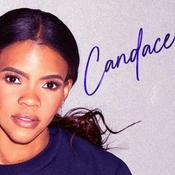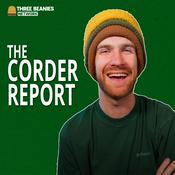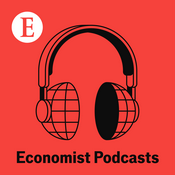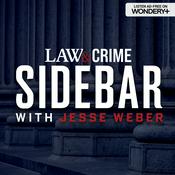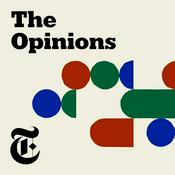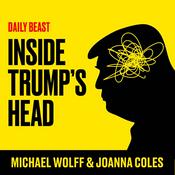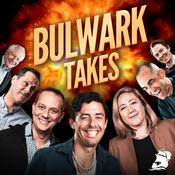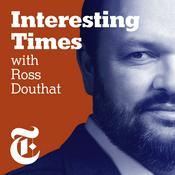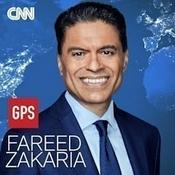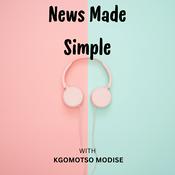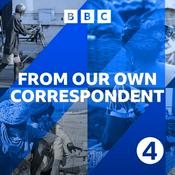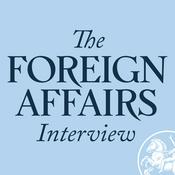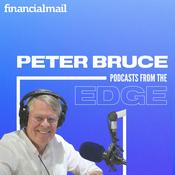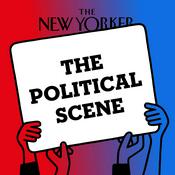124 episodes
- Ladies and gentlemen, we are officially back for Season Two, and we’re kicking things off with a cinematic banger that is as memeable as it is polarizing: Martin Scorsese’s 2013 opus, The Wolf of Wall Street.
In this episode, Kyle, Seth, and our brand-new official co-host, Mariana Barksdale, dive deep into the $100 million "laundering" scandal that financed the film, the infamous Quaalude-fueled "Lamborghini crawl," and whether this movie is a brilliant satire or the ultimate recruitment video for finance bros. We debate Leonardo DiCaprio’s "Mother Teresa" status compared to the real Caligula, the 1980s PTSD stories from real-life Wall Street veterans, and why Jonah Hill took a SAG-minimum salary just to snort vitamin D powder for Marty.
Whether you think this is a late-stage masterpiece or a "disjointed hodgepodge" of overcooked hors d'oeuvres, one thing is certain: we’re not leaving!
Key Takeaways
The Laundering Irony: Over $100 million was allegedly laundered through the production of this movie—the very crime the film depicts.
The "Lamborghini Crawl": Leonardo DiCaprio meticulously choreographed the car-door scene by studying a viral YouTube video of a drunk man in a convenience store.
Jonah Hill's Hospitalization: Hill actually developed bronchitis and was hospitalized after snorting so much vitamin D powder (fake cocaine) during the shoot.
The McConaughey Ritual: The famous chest-thumping scene was actually Matthew McConaughey’s real-life pre-scene relaxation ritual that Scorsese decided to film on a whim.
The Burger vs. Steak Debate: Kyle argues that while Goodfellas is a "steak," The Wolf of Wall Street is a "really good Wagyu burger" that lacks the intentionality of Scorsese's older work.
Cast & Credits Mentioned
The Crew: Kyle Castro, Seth Kays, and Mariana Barksdale.
The Visionary: Martin Scorsese.
The Stars: Leonardo DiCaprio, Jonah Hill, Margot Robbie, and Matthew McConaughey.
The Writing: Screenwriter Terence Winter based the script on the memoir by Jordan Belfort.
The Ensemble: Featuring standout moments from Kyle Chandler, John Bernthal, and Rob Reiner.
Takeaways:
In the podcast, we explore the various themes presented in the film 'The Wolf of Wall Street', emphasizing the moral complexities and societal implications that arise from the characters' actions.
We discuss the film's pacing and how its lengthy runtime affects the viewer's engagement, noting that certain scenes may detract from the overall narrative flow and coherence.
The conversation highlights the importance of character portrayal, particularly how Leonardo DiCaprio's performance as Jordan Belfort presents a charming yet... - Terminated: Why James Cameron’s 1984 Masterpiece Still Rules
Ladies and gentlemen, we are back! Welcome to the official kickoff of Season Two. We’ve got a massive show to celebrate our new permanent third member, the incomparable Mariana Barksdale. Between Kyle’s new book and Mariana’s comedy and acting takeover, a lot has happened—but we’re putting the life updates on ice to scratch a major cinematic itch: The Terminator (1984).
In this episode, we’re breaking down why this $6.4 million "indie" film changed the action genre forever. From James Cameron’s fever-dream origins to the guerrilla filmmaking tactics used to get the shot in Mexico, we dive deep into the techno-war that birthed a franchise. We’re talking Arnold’s 16 iconic lines, the "Incompetent AI" theories, and why OJ Simpson was almost the T-800—until the studio thought he was "too nice" to be a killer.
Episode Timestamps
[01:00:00] Season Two Premiere: Meet our new co-host, Mariana Barksdale.
[01:01:17] Why The Terminator is still one of the most important films ever made.
[01:03:41] Origin Story: James Cameron’s fever dream and the $1 rights deal.
[01:05:17] Gorilla Filmmaking: Shooting without permits and lying to the police.
[01:06:45] Practical Magic: The secrets of 1984 stop-motion and miniatures.
[01:14:10] The Lawsuit: James Cameron vs. Harlan Ellison.
[01:16:56] Rando Trivia: Arnold’s $1,300-per-word salary and the OJ Simpson casting that almost was.
[01:21:59] The Legend of Linda Hamilton: From naive waitress to future badass.
[01:24:43] The Questions: Is the phone book the Terminator's true nemesis?.
[01:29:00] Romance or Stalker-coded? Debating Kyle Reese’s obsession.
[01:37:05] The Closer: Winners, Losers, and the "Kenny G" version of the score.
[01:43:46] Rapid Fire Warzone Scorecard: The final verdict on Season Two's first film.
Key Takeaways
The $1,300 Word: Arnold Schwarzenegger had only 16 lines, totaling roughly 58 to 74 words.
Practical Over CGI: The film relied on miniatures, claymation, and a 10,000-volt laser for the T-800's pistol.
The OJ Theory: OJ Simpson was the studio’s first choice, but they feared he wasn't a "convincing killer".With Special Guest: Nashville Comedian Nick Galuzzo
For our Thanksgiving episode, we decided to really set the mood… with one of the bleakest, most soul-shredding thrillers ever made. Nothing says “pass the stuffing” like Denis Villeneuve’s Prisoners — a movie that starts on Thanksgiving and then immediately descends into pure moral chaos.
Kyle, Seth, and Nashville comedian Nick Goulooze break down everything this film does to you emotionally — the raw performances, the brutal moral questions, the lighting choices, the behind-the-scenes production history, the alternate casting that almost happened, and the reason this film still scars first-time viewers.
We get into Hugh Jackman’s most feral performance, Jake Gyllenhaal’s twitch-coded detective work, Paul Dano’s unsettling fragility, and why Villeneuve’s commitment to natural lighting and unrelenting dread makes this one of the greatest thrillers of the last decade.
This one’s loaded — heavy themes, gut-punch storytelling, hysterical side-tangents, and a breakdown of why this film technically qualifies as a “Thanksgiving movie.” Enjoy your turkey… and your existential crisis.
🔥 Episode Summary (In Your Voice)
In this Thanksgiving special, we dive headfirst into Denis Villeneuve’s Prisoners — the movie that tests your moral compass from frame one. We break down Jackman’s terrifying dad-rage, Gyllenhaal’s career-level performance, Paul Dano’s traumatized innocence, and the way Villeneuve weaponizes natural lighting to make every scene feel cold, damp, and hopeless.
We also walk through the wild production history, the nightmare alternate castings, and the six-year development hell that somehow produced a modern classic.
📌 Show Notes
🎥 Movie Breakdown
Why Prisoners is both a thriller and a full-blown morality test
How Denis Villeneuve uses subtle visual cues and “theater of the mind”
The whistle as the best callback ending of Villeneuve’s career
How the film keeps you in the “moral driver’s seat” the entire time
💥 Time Markers
0:00 — Thanksgiving intro + rusty after a break
3:00 — Why Prisoners scars you
7:00 — Acting breakdown: Jackman, Gyllenhaal, Dano
12:00 — Villeneuve’s natural lighting mastery
16:00 — Production hell + insane alternate castings
22:00 — The NC-17 version that almost happened
27:00 — Keller Dover: Hero or villain?
33:00 — The whistle ending and why it works
38:00 — Law Abiding Citizen vs Prisoners
44:00 — Trauma, rage, and parental panic
52:00 — Comedy tangents and Paul Dano appreciation
1:02:00 — Final thoughts + scorecard (War Zone)🎧 Movie Wars Podcast: Prey — Can the Predator Franchise Still Hunt?
This week on Movie Wars, we’re diving deep into Prey — the surprise Predator prequel that dared to strip the franchise down to its primal roots. We break down why this one hit so differently: from its raw depiction of Comanche culture and authentic casting to the jaw-dropping cinematography that turned blood and wilderness into visual poetry.
Kyle, Seth, and comedian Peter Murphy (yes, that Peter Murphy) debate whether Prey actually out-hunts the 1987 classic — and the answers get heated. We talk creature-feature psychology, the decline of movie stars, the “masculine myth” of 80s action, and why representation done right feels so good on screen.
Expect plenty of film nerd tangents, behind-the-scenes trivia, and the usual Movie Wars blend of humor and obsession — from callbacks to Predator 2’s gun Easter egg, to the wild story of how Prey secretly began as an “R-rated Disney princess film.”
Stick around for the War Card, where we go rapid-fire on cast, writing, direction, and the all-important “Would Arnold approve?” question.
Takeaways:
The most authentic and daring entry in the Predator series yet.
Deep dive into representation, casting, and language in Native storytelling.
Hot debate: Prey vs. the 1987 original — which really hunts harder?
Film lighting, creature effects, and where the franchise should go next (Samurai era?).
Peter Murphy brings the chaos, the laughs, and a few questionable bear facts.
Tags:
movie wars podcast, prey movie review, predator franchise, amber midthunder, native american representation, action movie analysis, film trivia, comedy podcast, arnold schwarzenegger, creature features, 80s action nostalgia, filmmaking craft, modern vs. classic cinema, cinematic storytelling, comedic debates🎙️ Episode Description: The Babadook — Grief, Monsters & Parenting Nightmares
The season finale dives into one of the most haunting indie horror films of the 2010s — The Babadook. We unpack how Jennifer Kent’s small, scrappy production turned a simple monster story into a psychological gut-punch about grief, trauma, and the brutal realities of parenting.
We get real about why this movie hits so hard emotionally, why Essie Davis delivers a powerhouse performance, and how a film made for just $2M became a cultural lightning rod. Plus: jump scares, stress scares, and why sometimes the scariest thing isn’t the monster — it’s the mirror.
This episode has everything: film history, behind-the-scenes “randos,” rapid-fire War Zone categories, and a big season-ending announcement.
🧠 Episode Highlights
The Babadook as a metaphor for unresolved grief and single parenthood.
Why Essie Davis’ performance is one of the best in modern horror.
How Jennifer Kent turned a short film into a cult classic with a $2M budget.
The moment Guillermo del Toro “spilled his popcorn” — and why minimal monster = max terror.
How the film’s restrained production style makes it unforgettable.
📝 Show Notes
🎬 Film: The Babadook (2014)
👩 Director: Jennifer Kent
🌍 Country: Australia
💰 Budget: $2M | Box Office: $10.8M
🕰 Runtime: 94 minutes
👑 Notable: Stephen King and William Friedkin called it one of the scariest films of the 21st century.
🧟 Fun Fact: The Babadook pop-up book sold 6,200 copies and goes for $500+ on eBay today.
🪦 Final Take
This isn’t just a horror movie — it’s a brutal, beautiful portrait of grief, isolation, and the monsters we feed in the dark. If you’ve ever loved or lost, The Babadook will crawl under your skin and stay there.
🎧 Stick around to the end for our big season finale announcement — and maybe a few bad Australian accent attempts.More News podcasts
Trending News podcasts
About Movie Wars
A panel of stand-up comedians blends humor with deep film analysis, using their unique ‘War Card’ system to grade movies across key categories. Each episode delivers thoughtful insights and spirited debate, offering a fresh, comedic take on film critique. New episode every Tuesday!Podcast websiteListen to Movie Wars, Today in Focus and many other podcasts from around the world with the radio.net app
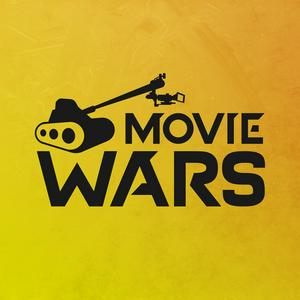
Get the free radio.net app
- Stations and podcasts to bookmark
- Stream via Wi-Fi or Bluetooth
- Supports Carplay & Android Auto
- Many other app features
Get the free radio.net app
- Stations and podcasts to bookmark
- Stream via Wi-Fi or Bluetooth
- Supports Carplay & Android Auto
- Many other app features


Movie Wars
Scan code,
download the app,
start listening.



